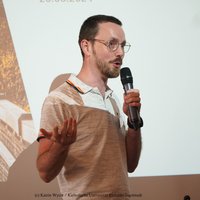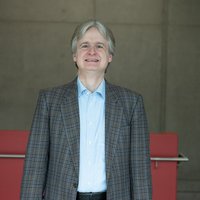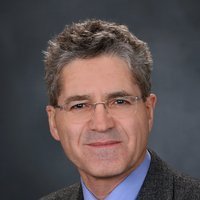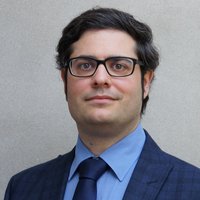Doctoral Studies Centre for “Transformation and Sustainable Development”
Do you have a relevant master’s degree and would like to work on applied, human-centred research to contribute towards a sustainable society? Are you prepared to conduct long-term research on a scientific topic considering technical, social, economic and ecological aspects, and working on the following five Sustainable Development Goals set by the United Nations?
- Good health and well-being
- Quality education
- Affordable and clean energy
- Industry, innovation and infrastructure
- Climate action
Then you can earn a Doctorate in Engineering at our Doctoral Studies Centre – the only one with stand-alone doctoral rights at comparably sized Bavarian universities of applied sciences. For a non-committal initial consultation or onboarding to get started, simply email or call!
Get in touch
Dr Gloria Petraschka
Officer at the Centre for Doctoral Studies
+49 (0)831 25239676
promotion(at)hs-kempten.de
Building N, Room N204
Bahnhofstr. 61, 87435 Kempten, Germany
Dr Cathrin Stiegelmeyr
Officer at the Centre for Doctoral Studies
+49 (0)831 2523676
promotion(at)hs-kempten.de
Building N, Room N204
Bahnhofstr. 61, 87435 Kempten, Germany
Doctoral candidates' representative
promovierendenvertretung(at)hs-kempten.de
Step by step towards your doctorate
in accordance with the doctoral regulations of Kempten University of Applied Sciences
- Contact a potential professor about the doctoral project
- Arrange supervision agreement and prepare an exposé
(The relevant documents will soon be posted on this website.) - Submit official application / documents for the doctoral project to the Doctoral Committee
- Doctoral Committee decides on acceptance as a doctoral candidate
- Commence the doctoral project
About the Doctoral Studies Centre
Requirements
Anyone wishing to pursue a doctorate at the Doctoral Studies Centre requires a relevant degree at master’s level (e.g. German Diplom, Magister or state examination). The chosen research topic must address two of the five SDGs on which the Doctoral Studies Centre focuses. In addition, each doctoral project requires two supervising professors, with at least the first being a member of the Doctoral Studies Centre. Further formalities can be found in the doctoral regulations.
You can find out more about the academic requirements in the general information about doctorates.
Mission statement
The Doctoral Studies Centre is dedicated to researching transformative processes for sustainable technological and social developments aligned with the five highlighted United Nations’ SDGs and the German Sustainability Strategy
Researchers focus on the fields of energy, mobility, production and social innovation in their interdisciplinary work on innovative technologies and social and societal issues. This networked approach enables us to equip up-and-coming young scientists with the skills to develop sustainable solutions for society, education and the economy in the future.
Background
The University Innovation Act and thus the legal framework for Hightech Agenda Bavaria came into force on 1 January 2023. This is set to make the academic-scientific sector in Bavaria powerful and competitive both nationally and internationally in all key areas for the next 20 to 30 years, fundamentally reorganising the Bavarian higher education system towards agility, excellence and innovation. Successful talent scouting is a key objective – including carefully nurturing the next generation by according universities of applied sciences in Bavaria the new right to award doctorates.
On 16 July 2024, Kempten University of Applied Sciences was granted the right to award doctorates at the
Doctoral Studies Centre for “Transformation and Sustainable Development”.
Doctoral regulations and doctoral statutes
These links will take you to the doctoral regulations and doctoral statutes for the Doctoral Studies Centre.
Members
The following professors are members of the Doctoral Studies Centre:
Benzinger, Petra, Prof. Dr.
Donhauser, Christian, Prof. Dr.
Finkenrath, Matthias, Prof. Dr.
Friedrich, Petra, Prof. Dr.
Giuliani, Manuel, Prof. Dr.
Göhner, Ulrich, Prof. Dr.
Hagel, Georg, Prof. Dr.
Heieck, Frieder, Prof. Dr.
Hesse, Holger, Prof. Dr.
Huesgen, Till, Prof. Dr.
Jung, Rolf, Prof. Dr.
Keller, Robert, Prof. Dr.
Klingele, Matthias, Prof. Dr.
Layh, Michael, Prof. Dr.
Pinzer, Bernd, Prof. Dr.
Schick, Bernhard, Prof.
Staudacher, Jochen, Prof. Dr.
Zeh, Thomas, Prof. Dr.
Prof. Dr. Petra Benzinger
Fakultät Soziales und Gesundheit
DetailsProf. Dr. Christian Donhauser
Fakultät Maschinenbau
DetailsProf. Dr. Matthias Finkenrath
Fakultät Maschinenbau
DetailsProf. Dr. Petra Friedrich
Fakultät Elektrotechnik
DetailsProf. Dr. Manuel Giuliani
Fakultät Elektrotechnik
DetailsProf. Dr. Ulrich Göhner
Fakultät Informatik
DetailsProf. Dr. Georg Hagel
Fakultät Informatik
DetailsProf. Dr. Frieder Heieck
Fakultät Maschinenbau
DetailsProf. Dr. Holger Hesse
Fakultät Maschinenbau
DetailsProf. Dr. Till Huesgen
Fakultät Elektrotechnik
DetailsProf. Dr. Rolf Jung
Fakultät Informatik
DetailsProf. Dr. Robert Keller
Fakultät Tourismus-Management
DetailsProf. Dr. Matthias Klingele
Fakultät Maschinenbau
DetailsProf. Dr. Michael Layh
Fakultät Maschinenbau
DetailsProf. Dr. Bernd Pinzer
Fakultät Maschinenbau
DetailsProf. Bernhard Schick
Fakultät Maschinenbau
DetailsProf. Dr. Jochen Staudacher
Fakultät Informatik
DetailsProf. Dr. Thomas Zeh
Fakultät Elektrotechnik
DetailsCo-operative doctorates
For co-operative doctorates, the doctoral project is conducted at Kempten University of Applied Sciences and supervised by professors from both a traditional university and the university of applied sciences. The doctoral procedure is subject to the doctoral regulations of the supervising traditional university. The professor at the university of applied sciences is involved as an assessor in the formal doctoral procedure at the traditional university, which confers the degree.
Co-operative doctorates can be conducted via BayWISS, for example. In this case, it is a consortial doctorate, located in one of the currently eleven subject-specific doctoral training centres. The doctoral project is usually conducted as part of a position as a research assistant at Kempten University of Applied Sciences. A supervision agreement is drawn up for each doctoral project – with a topic, specialist supervision and time frame. In the case of consortial doctorates, the right to award doctorates lies with the traditional university involved. The supervising university of applied sciences is also named on the certificate awarded by the traditional university.
Get in touch
Dr Gloria Petraschka
Officer at the Centre for Doctoral Studies
+49 (0)831 25239676
promotion(at)hs-kempten.de
Building N, Room N204
Bahnhofstr. 61, 87435 Kempten, Germany
Dr Cathrin Stiegelmeyr
Officer at the Centre for Doctoral Studies
+49 (0)831 2523676
promotion(at)hs-kempten.de
Building N, Room N204
Bahnhofstr. 61, 87435 Kempten, Germany
Doctoral candidates' representative
promovierendenvertretung(at)hs-kempten.de
General information about doctorates
Aims of a doctorate
The doctorate describes an individual research achievement after graduation and the academic title of doctor awarded for this. Upon successful completion, the scientist is awarded a doctorate in his or her subject – the highest academic degree in Germany, other than the professorial adjunct “Habilitation”.
The aim of a doctorate is to hone the candidate’s ability to conduct profound scientific work – the evidence of which is provided by the doctoral dissertation. The independent research work documented in this way essentially contributes to the scientific progress of the respective discipline.
The doctorate is concluded with an oral examination (“defence”). After successfully completing the doctorate, Kempten University of Applied Sciences or the traditional university awards the doctorate to the candidate. The doctoral degree is supplemented by the respective specialisation (e.g. Dr.-Ing. for a doctorate in engineering).
Academic requirements
The exact requirements are determined by the respective university of applied sciences or traditional university. As a rule, the intended doctoral project is thematically related to the completed degree programme. Information about the general conditions and admission requirements at the Doctoral Studies Centre at Kempten University of Applied Sciences can be found in the Doctoral regulations .
If you graduated in Germany, then the admission requirements will substantially depend upon whether your previous degree was awarded by a research university, an academy of art or music, or a university of applied sciences. If you graduated elsewhere, then the university of applied sciences or traditional university awarding the doctorate is responsible for decisions on recognising academic degrees from abroad.
Seeking doctoral opportunities
at/with Kempten University of Applied Sciences (or in general).
We recommend proceeding as follows:
- Consider suitable research specialisations and potential subject areas – you can Consult institutes’ websites
- Browse current and completed research projects at Kempten University of Applied Sciences and the academics involved in these projects
- Look for suitable vacancies for research assistants/doctoral positions on the university’s website, online portals, in subject-related associations newsletters, or in national newspapers
- Contact the professor who supervised your master’s thesis or enquire at the Doctoral Studies Centre office
Funding options
As a rule, a doctorate requires full-time engagement with the doctoral topic for at least 3 years. It is therefore advantageous to be employed at least half-time as a research assistant for this work.
Kempten University of Applied Sciences advertises vacancies for research assistants at its institutes in this respect.
In addition, various organisations offer doctoral scholarships, which are usually subject to a strict selection process and often offer only partial funding. Potential sources of funding:
- Support for talented students in higher education from Scholarshipplus
- Research scholarships for doctoral students from the German Academic Exchange Service (“DAAD”) – support for visits abroad to conduct research towards a doctorate in Germany
- BAYHOST annual scholarships offered by the Free State of Bavaria for graduates from Bulgaria, Croatia, Poland, Romania, Russia, Serbia, Slovakia, the Czech Republic, Ukraine and Hungary
- Christiane Nüsslein-Volhard Foundation for women with children on the career pathway towards working as scientists – funding female doctoral and post-doctoral students particularly in experimental natural sciences and medicine
- The LaKoF scholarship from the State Conference of Women’s and Equal Opportunities Officers at Bavarian Universities aimed at particularly talented women graduates from universities of applied sciences.
- The portal MyStipendium includes many different scholarships to assist with living expenses, stays abroad and grants for academic work.



